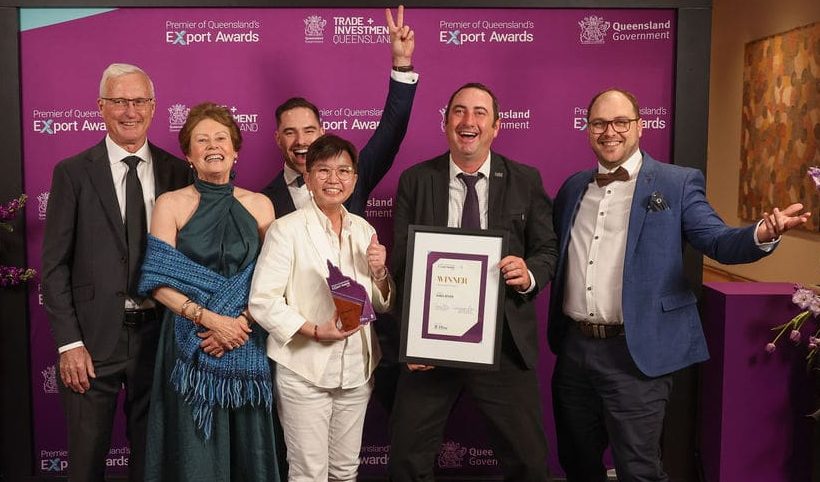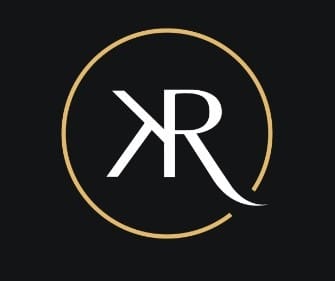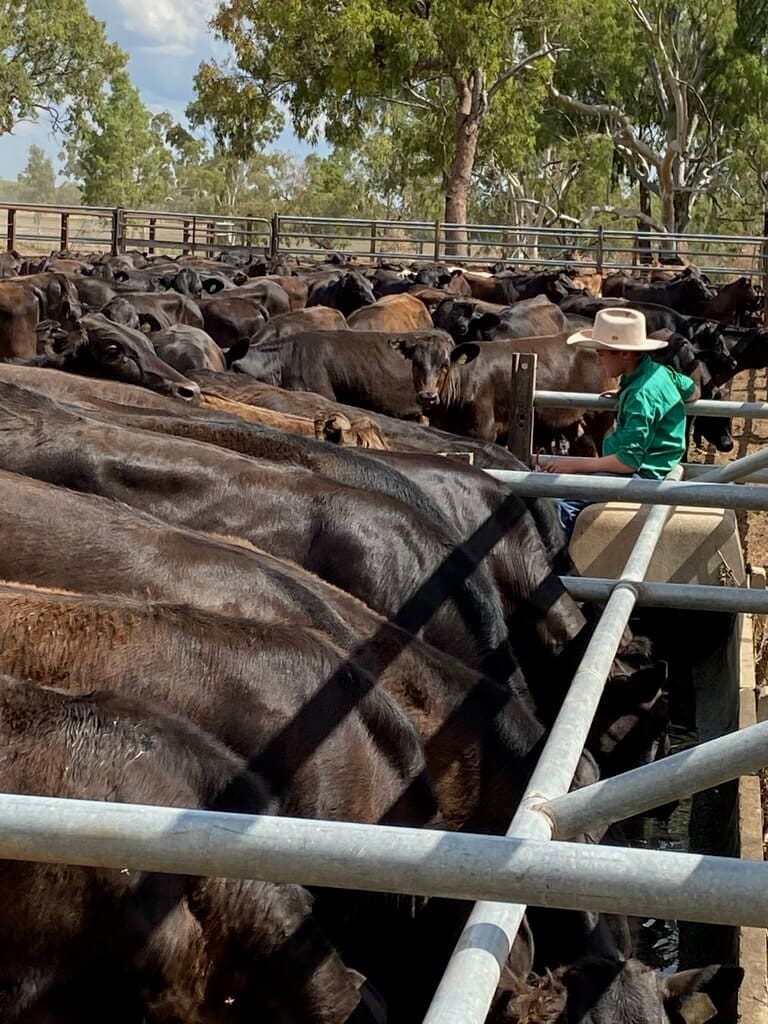
The King River crew accepting the Premier’s Export award included from left, Jim and Robyn Rich, Josh Rich, Lee Kim Koh, Harry Kemp and John Turner
ONE of the nation’s youngest vertically-integrated Wagyu beef supply chains has been acknowledged with a major export achievement award this month.
While the major stakeholders in the business have been involved in the beef industry for decades, King River Wagyu was launched as an export entity only less than three years ago.
Its rapid progress, customer focus and market impact were acknowledge with the Regional Exporter of the Year award in this month’s Premier of Queensland Export Awards.
King River also placed as a finalist in two other award categories, for Agribusiness, Food and Beverages; and Emerging Exporter.
 Fourteen outstanding Queensland businesses drawn from wide ranging pursuits including aerospace, e-commerce, manufacturing, education and resources and energy were acknowledged at the 2024 Export Awards Dinner held at the Brisbane Convention and Exhibition Centre.
Fourteen outstanding Queensland businesses drawn from wide ranging pursuits including aerospace, e-commerce, manufacturing, education and resources and energy were acknowledged at the 2024 Export Awards Dinner held at the Brisbane Convention and Exhibition Centre.
Queensland Premier Steven Miles said the awards were an acknowledgement of every single business and exporter’s hard work in putting the state on the world stage.
“They truly represent all that is impressive about our exporters and about Queenslanders doing business around the world,” Premier Miles said.
King River director Harry Kemp said it was great to see an ag sector business compete against other successful cutting-edge industries in the awards.
“It’s a win for agriculture and Wagyu, of course. A fantastic result and a wonderful team and business to be a part of into the future. We’ve built a robust business model that delivers the highest quality from paddock to plate for our clients around the world,” he said.
King River Wagyu was established by the Rich and Kemp families, both with deep connections and history in the northern cattle industry.
The business is built around a network of five grazing properties across north, northwest and Central Queensland covering some 242,000ha, plus the Kemp family’s Lotus Park feedlot near Sarina, south of Mackay.
The breeding and backgrounding holdings include Carmelong station near Marlborough, Eight Mile Station in the Burdekin, Strath Park near Julia Creek, Mt Ravenswood Station in the Upper Burdekin and Lotus Park.
The 10,000 head capacity Lotus Park feedlot has been operated by the Kemp family for 40 years. It started feeding small numbers of Wagyu in 2017, but numbers have grown substantially since then. The Rich family started dabbling in Wagyu breeding around 2015.
While Lotus Park still feeds some conventional 100-day cattle to be sold into established exporter grainfed programs, the feedlot’s inventory is gradually transitioning into more longfed Wagyu cattle under the King River program.
The establishment of the King River Wagyu export venture brought together both families’ skillsets and resources. While both the Kemp family’s Lotus Park business and the Rich family’s cattle business had produced beef from conventional breeds for decades, neither had ventured into the export space prior to the establishment of the King River Wagyu venture.
In addition to cattle bred and grown by the Kemp and Rich families themselves, five other substantial central/North Queensland Wagyu breeders also supply feeder cattle into the King River program, building a strong provenance story.
Finished Wagyu cattle are processed at the John Dee export plant near Warwick, and Northern Cooperative Meat Co at Casino, recently re-approved for China.
Exports to 40 countries
In what has been a dramatic rise in less than three years, King River now exports Wagyu beef into 40 countries around the world through a series of partners and distributor networks, with the European Union being the biggest destination by volume, followed by China and South Korea.
The United States is seen as a key target next year, given the current US cattle industry cycle, and King River will attend a large trade show in San Diego in January.
In-country distribution networks delivering to restaurants, food services and stores play a key role.
Determining destiny
King River general manager Josh Rich said the company did its first export consignment under its own license in January 2022, having worked through another export license-holder for 12 months prior to that.
“It was really about seeking to extend further down the supply chain,” he told Beef Central, in explaining the origins of the King River venture.
“We’d spent all this time and effort breeding and raising these cattle, and never really got to determine our own destiny, as far as the meat side was concerned. We all wanted some insight into the final supply chain, and to get closer to our ultimate customers,” he said.
From the outset of the brand program, King River had aimed to build long-term partner and customer relationships, now represented on three continents.
“To minimise risk for our network and provide long-term sustainability, our business model goes against industry norms, but reduces dependency on the success or failure of multiple junctures in the value chain,” Mr Rich said.
“In a fairly narrow and changeable industry the way we operate delivers certainty and reliability to our trusted partners and valued customers, and we truly enjoy hosting customers on-farm to experience the King River supply chain.”
The business aims to customise orders for each international customers’ precise needs, maximising versatility of every beef carcase, adding profitability and sustainability. When customers need help with in-country promotions, the King River program invests in marketing material, signage, co-branding and fresh, professional presentation.
The branded beef program operates just two streams – one for Purebred Wagyu 93.75pc content and higher, and an F2-F3 program for cattle carrying 75pc content or higher.
“We’re very big on not being a house of brands,” Josh Rich said. “We’d rather be a branded house.”


Congratulations!
A very deserving award for a professional, progressive company and a champion bunch of people!